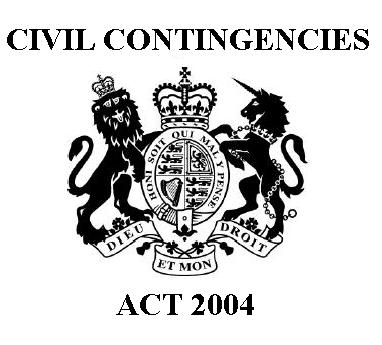 After two years the revision of the Civil Contingencies Act (CCA) through the Enhancement Programme (EP) is nearing completion with the final consultations closing on 27th September 2011.
After two years the revision of the Civil Contingencies Act (CCA) through the Enhancement Programme (EP) is nearing completion with the final consultations closing on 27th September 2011.
The Enhancement Programme to the Civil Contingencies Act covers most areas of the legislation and has been split into phases. The phase has delivered updates centred primarily on Emergency Response and Recovery across the country and builds on the lessons learnt since the introduction of the Act. Clarification and updates have also been made on Good Practice Guidance, Mutual Aid and the fit with other legislation. (Summary of Phase One work)
The work continues with consultation on the changes proposed in the following areas:
Co-operation
Local Responder Risk Assessment Duty
Business Continuity Management
Communicating with the Public
Business Continuity Advice and Assistance to Business and the Voluntary Sector);
Arrangements for London
If you have yet to review these changes to the Act time is running out. You can use the links below to see and comment on the changes proposed.
The Continuity Forum welcomes the revision process, particularly the aligning of Business Continuity arrangements with the British Standard BS25999 that we feel the revisions significantly clarify the expectations of the Act within all Category One and Two Responders. Another Major plus for the revised Act are the expectations relating to communications which we feel is a major step forward, providing greater clarity and removing much of the ambiguity that previously existed. It is clear to us that the CCA team has worked hard to a balanced review that provides flexibility in delivering appropriate solutions and processes, whilst maintaining clear direction on the expectations of the Act.
The alignment with BS25999 is of particular importance to the sector and our communities as the Civil Contingencies Act preceded the launch of the Standard. Whilst many of those within the sector had aligned with BS25999 principles the now revisions make this expectation far clearer. We would hope that those planing in Category One and Two organisations will quickly move to assess and adapt their planning to meet this expectation, in particular the aspects that address their supply chain. Many BCM professionals working within organisations covered by the CCA have found this area to be a difficult area to address with management and has led to numerous avoidable problems.
One area that we feel may need to be strengthened is the verification and audit of of the Business Continuity arrangements in place. Whilst we accept that some aspects of the BCM capabilities within Category One organisations may need a degree of adaption (and indeed BS25999 allows for this) this should not undermine the intent of either the Act or BS25999. Consequently, we would to see a condition added to justify variance from the standard. This would not undermine the flexibility of either the Act or standard, but would result in evidence for the need to vary from accepted Good Practice to be justified more clearly. We also feel that a little more focus should be given to the audit and assessment of the plans developed and deployed as could be argued as fundamental to delivery of value from the investment being made.
With regards to Category Two responders, we feel that the regulators for these sectors need to pay far more attention to the Business Continuity arrangements developed by the companies they are responsible for regulating and should demand similar levels of detail and regular updates. The Continuity Forum is working in this area and we are hoping to meet with the primary regulators shortly to discuss this issue further.
Links to more information is shown below: (Opens in new window)
In a change to previous consultations, those wishing to comment are asked to submit their comments, via a dedicated on-line survey. The link is HERE!
Final versions of the revised Act are expected to be complete in early Spring 2012.
If you have any questions or would like to discuss the Civil Contingencies Act in more detail please do get in touch.

